Proceedings of the 7th World Congress
on Recent Advances in Nanotechnology (RAN'22)
April 04 - 06, 2022 | Lisbon, Portugal
Virtual Congress
The keynote information for the 7th World Congress on Recent Advances in Nanotechnology (RAN'22) is as follows:
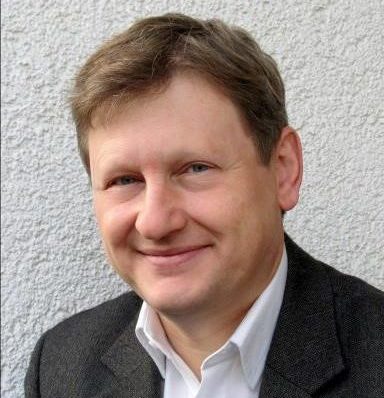
Dr. Wolfgang Ensinger
Technische Universität Darmstadt, Germany
ICNNFC'22 Keynote Speaker
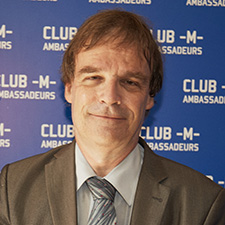
Dr. Philippe Knauth
Aix Marseille Université, France
ICNNFC'22 Keynote Speaker
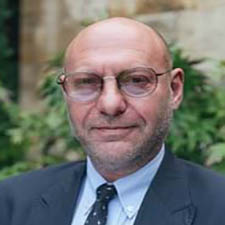
Dr. Alexander Korsunsky
University of Oxford, UK
ICNNFC'22 Keynote Speaker
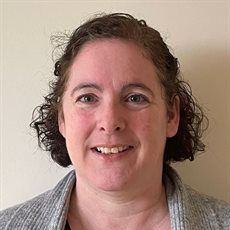
Dr. Iseult Lynch
University of Birmingham, UK
ICNNFC'22 Keynote Speaker
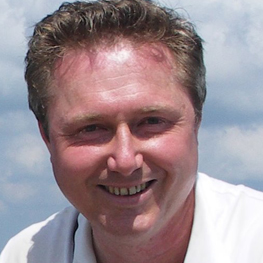
Dr. Josef Jampilek
Comenius University, Slovakia
NDDTE'22 Keynote Speaker

Dr. Moein Moghimi
Newcastle University, UK
NDDTE'22 Keynote Speaker

Dr. Wolfgang Ensinger
Technische Universität Darmstadt, Germany
NDDTE'22 Keynote Speaker
Wolfgang Ensinger studied chemistry and physics at the Universities in Karlsruhe and Heidelberg in Germany. He received his PhD in 1988 from Heidelberg University. Thereafter, he was a guest researcher at Osaka National Research Institute in Japan, lecturer at Institute of Solid State Physics at University Augsburg and professor of Analytical and Nuclear Chemistry at University of Marburg. Since 2004, he is a full professor of Material Analysis at Technical University of Darmstadt in Germany. His research topics include formation of thin films and nanostructures, including nanochannels, nanowires and nanotubes. He has authored/co-authored more than 200 peer-reviewed scientific publications.
Topic of Keynote: Ion Damage Tracks in Polymers - Fabrication of 1-Dimensional Nanostructures: Nanochannels, Nanowires and Nanotubes

Dr. Josef Jampilek
Comenius University, Slovakia
NDDTE'22 Keynote
Josef Jampilek completed his Ph.D. degree in Medicinal Chemistry at the Faculty of Pharmacy of the Charles University (Czech Republic) in 2004. In 2004-2011, he worked in expert and managerial posts in the R&D Division of the pharmaceutical company Zentiva (Czech Republic). Prof. Jampilek deepened his professional knowledge at the Medicinal Chemistry Institute of the Heidelberg University (Germany) and at multiple specialized courses. In 2017, he was designated as a Full Professor of Medicinal Chemistry. At present he works at the Regional Centre of Advanced Technologies and Materials, Palacky University in Olomouc (Czech Republic) and the Faculty of Natural Sciences, Comenius University in Bratislava (Slovakia). In addition, he is a visiting professor at the University of Silesia in Katowice (Poland) and Hong Kong Baptist University (Hong Kong SAR, China) and an invited professor/expert at various higher educational institutions. He is an author/co-author of more than 30 patents/patent applications, more than 200 peer-reviewed scientific publications, 7 university textbooks, more than 30 chapters in monographs, and many invited lectures at international conferences and workshops. He also received several awards for his scientific results, e.g., from Aventis, Elsevier, Willey, Sanofi and FDA. The research interests of Prof. Jampilek include design, synthesis, and structure-activity relationships of heterocyclic compounds as anti-invasive and anti-inflammatory agents as well as nanosystems. He is also interested in ADME, drug bioavailability and solid-state pharmaceutical analysis.
Topic of Keynote: Nanoscale Antimycotics and Antifungal Active Nanocomposites

Dr. Philippe Knauth
University of Victoria, Canada
ICNNFC'22 Keynote
Currently Professor of Materials Chemistry and Director of the Chemistry Department at Aix Marseille University. Obtained his PhD in Physical Chemistry (Dr. rer. nat., Saarland University) in 1987 and the Habilitation in Materials Science (Aix Marseille University) in 1996. Prior to becoming a Full Professor in 1999, hold different positions: post-doctoral fellow (CNRS, Centre de Thermodynamique et de Microcalorimétrie, 1987-1989), laboratory head at Bayer Co. (Pigments and Ceramics Division, 1989-1990) and CNRS researcher (“Chargé de Recherche“, 1990-1999). Member of the Editorial Board of several international journals: “Journal of Electroceramics” (Springer), “Journal of Nanomaterials” (Hindawi), “Frontiers in Energy Research” and “Membranes” (MDPI). Société Chimique de France (SCF): Vice-President (2006-2010) and President (2010-2017) of the “Provence-Alpes-Cote d’Azur” regional section and member of the Administration Council (Board of Directors) of SCF (representing the regional sections 2012-2017).
IUPAC: National Representative 2015-2019 and Titular Member since 2019 (Division II: Inorganic Chemistry). Appointed visiting scholar at MIT in 1997-98 and 2013 and Invited professor at the National Institute of Materials Science (Tsukuba, Japan) in 2007 and 2010 and at the University of Rome Tor Vergata in 2009, 2011 and 2022.
Fellow of the French Chemical Society (“Membre Distingué”) and recipient of the Grand Prix Franco-italien (SCF PACA/SCI Liguria-Piemonte-Valle d’Aosta, 2020), the IAAM Medal (International Association for the Advancement of Materials) 2018, the Silver Medal of the Warsaw University of Technology (2015) and the CNRS Bronze Medal (1994). Main research interests: solid state ionics and ionic conduction near interfaces, nanostructured materials for energy storage and conversion, polymer electrolytes for electrochemical energy technologies.
Topic of Keynote: Heteroatom-Doped Carbon Quantum Dots as Electrocatalysts for the Oxygen Reduction Reaction

Dr. Alexander Korsunsky
University of Oxford, UK
ICNNFC'22 Keynote
Professor Alexander Korsunsky is a world-leader in engineering microscopy of materials for optimisation of design, durability and performance. He leads the MBLEM lab (Multi-Beam Laboratory for Engineering Microscopy) at Oxford, and the Centre for In situ Processing Science (CIPS) at the Research Complex, Harwell. He consults Rolls-Royce plc on matters of residual stress and structural integrity, and is Editor-in-Chief of Materials & Design, a major Elsevier journal (2018 impact factor 5.770).
Alexander holds the degree of Doctor of Philosophy (DPhil) from Merton College, Oxford. He was Junior Research Fellow at Fitzwilliam College, Cambridge, and Lecturer at Newcastle University, before returning to Oxford. Each year he gives several keynote and plenary lectures at major international conferences. He has extensive links that include visiting appointments in Italy (Roma Tre), France (ENSICAEN) and Singapore (NUS, NTU, A*Star).
Topic of Keynote: Nanostructuration in Hydrogels and Electrospun Fibre Mats for Biomedical Applications

Dr. Iseult Lynch
University of Birmingham, UK
ICNNFC'22 Keynote
Professor Iseult Lynch undertook her PhD in Physical Chemistry at University College Dublin developing responsive polymeric materials for use in medical devices and as tissue growth substrates. She subsequently did several years of postdoctoral research at Physical Chemistry 1, Lund University in Sweden, including as an EU Marie Curie Fellow, investigating several aspects of colloid and interface science and biophysics. She returned to University College Dublin in 2006 where she led the nanoparticle synthesis and bio-characterisation group at the Centre for BioNano Interactions (CBNI). She then became the Strategic Research Manager for CBNI, and was instrumental in securing multiple large scale national and EU funding bids. In March 2013 she joined the University of Birmingham as a Lecturer in Environmental Nanosciences, becoming Senior Lecturer in 2015 and Professor of Environmental Nanosciences in 2016.
Topic of Keynote: The Role of the Biomolecule Corona in Determining Biocompatibility of Nanoscale Materials

Dr. Moein Moghimi
Newcastle University, UK
NDDTE'22 Keynote
Moghimi is widely recognised for his contribution to fundamental and translational research in nanomedicine and drug delivery, especially in mechanistic understanding of nanoparticle-mediated complement activation and infusion reactions, and as an inventor of many nanosystems for tissue-specific targeting. The latter have included “splenotropic” and “lymphotropic” nanoparticles. Among the latest inventions of Moghimi’s laboratory are the NanoLigand Carriers. These are induced self-assemblies of phage-derived display peptides that on intravenous injection rapidly target two receptors on the blood brain-barrier, reaching neurons and microglia. A 2021 study by Stanford University list Moghimi among the top 0.08% of world’s leading scientists across in all fields, and rank him at 53 (out of 131,063) in the field of pharmacology in the world and 28 in Europe. As to date, Moghimi’s research programme has secured over €25 million funding. He is widely published (>300 research papers, reviews, book chapters, proceedings, etc., ORCID: 0000-0003-0836-926X) and cited (>24,000 citations and h-index of 70, GS as of Jan 2022), and has delivered >400 invited plenaries, keynote speeches and distinguished lectures world-wide. He also serves on editorial board of >10 international journals including Advanced Drug Delivery Reviews, Journal of Controlled Release and Nanomedicine (Lond.). He is also an active consultant to industry and governmental organisations.
Topic of Keynote: Advances in Nucleic Acid Medicine Delivery to the Brain